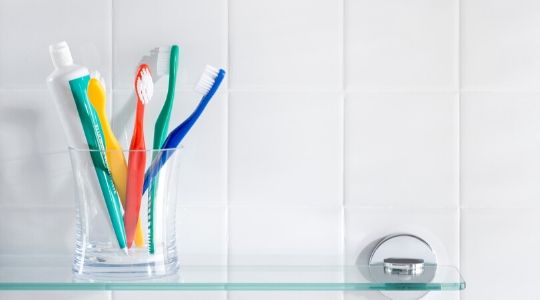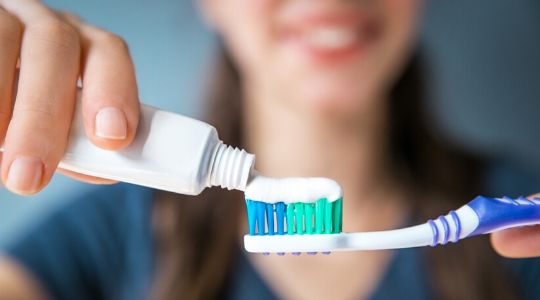
What you need to know about sugar and teeth
Everyone knows too much sugar is bad for your teeth, but do you really understand why?
Here’s our beginner’s guide to the science behind why sugar is enemy number one for teeth, and how to combat its negative effects.
Sugar leads to acid
Your mouth is full of hundreds of different types of tiny bacteria. Most of these are enormously helpful in breaking down food and generally maintaining a balanced healthy mouth.
However, among these naturally occurring bacteria, there are some less welcome candidates. It’s these critters that feed on the sugars you eat, creating acids that dissolve our tooth enamel. Enamel is the outer layer of the tooth, which protects the deeper layers of tooth, called dentine and the live central part of the tooth called the pulp which contains nerves and blood vessels.
The more often that you eat sugar-refined, processed or as carbohydrates, the more acid that’s produced. If acid is allowed to corrode the tooth enamel, and goes unchecked, it can cause holes in the teeth known as cavities, or tooth decay.
Food particles can easily get caught in the cavities, acting as a breeding ground for more bacteria and resulting in even more acid burrowing into the tooth. If tooth decay is left to continue, it can result in infections, severe toothache and even the loss of the tooth.

How the body protects teeth
So, your teeth are being constantly attacked by unwelcome acids that are a by-product of breaking down sugars from food. How do they survive?
The good news is that your body naturally works to reverse the damage done by the acid in a process called remineralisation. Acids strip minerals from the enamel, but saliva contains calcium and phosphates, the minerals needed to repair the teeth.
Fluoride, found in any good toothpaste and a few food and drinks, not only prevents but reverses tooth decay in its early stages by repairing weakened enamel. This is one of the many reasons brushing your teeth regularly is so important.
But if you eat too many sweet and starchy foods throughout the day, your saliva will start to lose this battle.
How you can minimise sugar damage to teeth?
Firstly, and most importantly, it’s not how much sugar you have – it’s how often you have it!
Yes, we know it’s difficult, but the most effective way of avoiding tooth decay is simply to consume sugar less frequently. Be particularly wary of sugary foods that take a long time to chew or dissolve in the mouth like hard or sticky sweets as these are the worst offenders.
But when you simply cannot resist a sugar fix, make sure you eat sweet snacks as part of a larger meal. This will have triggered greater saliva flow bathing the teeth in the minerals they need to protect them, but also flushing the excess acid out of the mouth. It’s also a good idea to end a meal with a glass of water.
If you're in the mood for a sweet treat, check out our video for homemade healthy ice lollies. We also have a recipe for low-sugar banana bread.
Chewing on sugar-free gum and high-fibre fruit and vegetables is also a good way to stimulate saliva flow. Eating foods rich in calcium and phosphates and low in sugar like cheese and yogurt will help strengthen teeth. Read about what other foods are naturally good for your teeth.
Green and black teas also contain substances that suppress harmful bacteria in the mouth, helping maintain a healthy balance. Black tea also contains the tooth’s favourite friend, fluoride.

Get your fluoride fix
We cannot overstate what a wonder fluoride is for the teeth, so make sure you brush your teeth at least twice a day with a fluoride toothpaste. Brushing also scrubs away any excess food and bacteria-filled plaque hiding in the nooks and crannies of your teeth and gums, which may cause acid build-ups.
Daily flossing or brushing between the teeth will ensure no food and bacteria can hide in these tiny gaps.
If you’re lucky you may live in an area where the tap water is fluoridated to help protect your teeth. If not, any bottled water is likely to contain a healthy level of fluoride.
Not much food and drink naturally contain fluoride, but black tea, potatoes and crab are among those that do.
Are you getting regular dental check-ups?
Regular check-ups with your dentist mean a better chance of spotting tooth decay early, so this can be addressed and treated before more damage is done.
Bupa Dental Care is a leading provider of both NHS and private dental services and has over 350 practices across the UK. Find your local practice below to book in your next dental check-up.
Bupa Dental Care is a trading name of Oasis Dental Care Limited. Registered in England and Wales No: 00478127. Registered office: Bupa Dental Care, Vantage Office Park, Old Gloucester Road, Hambrook, Bristol, United Kingdom BS16 1GW.
Oasis Dental Care Limited has a number of trading names including Bupa Dental Care. For a list of all our different trading names please follow this link.
